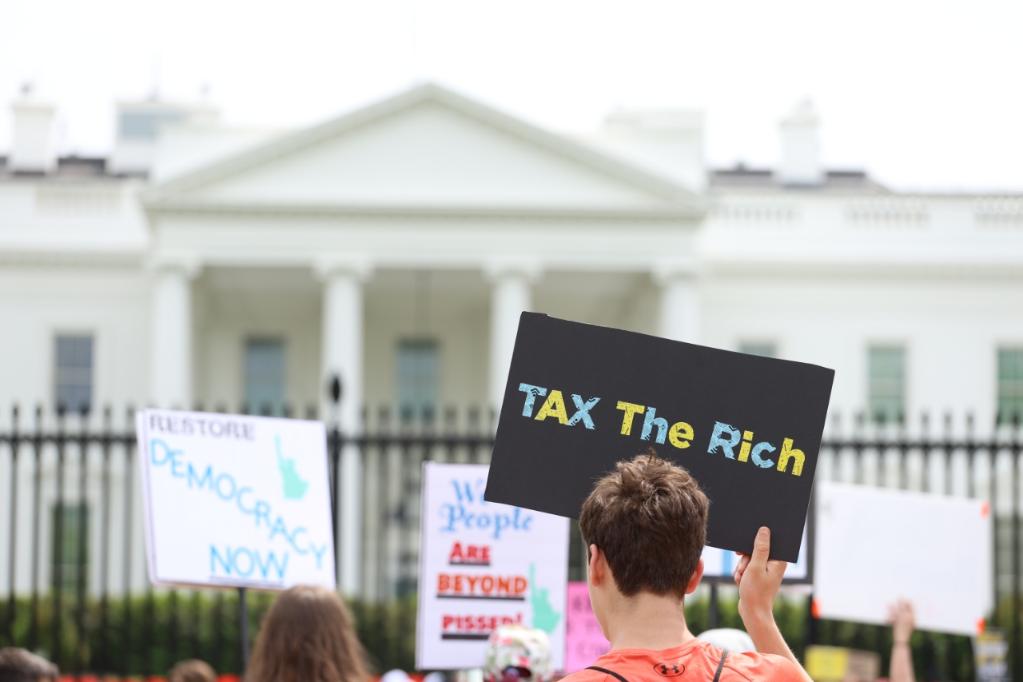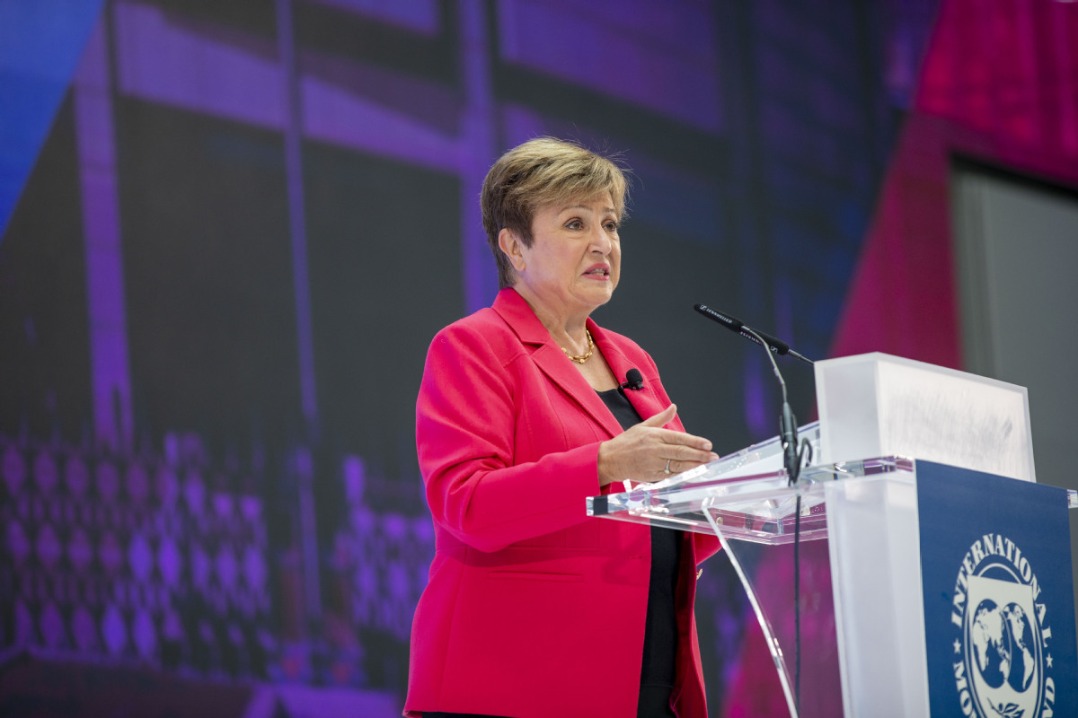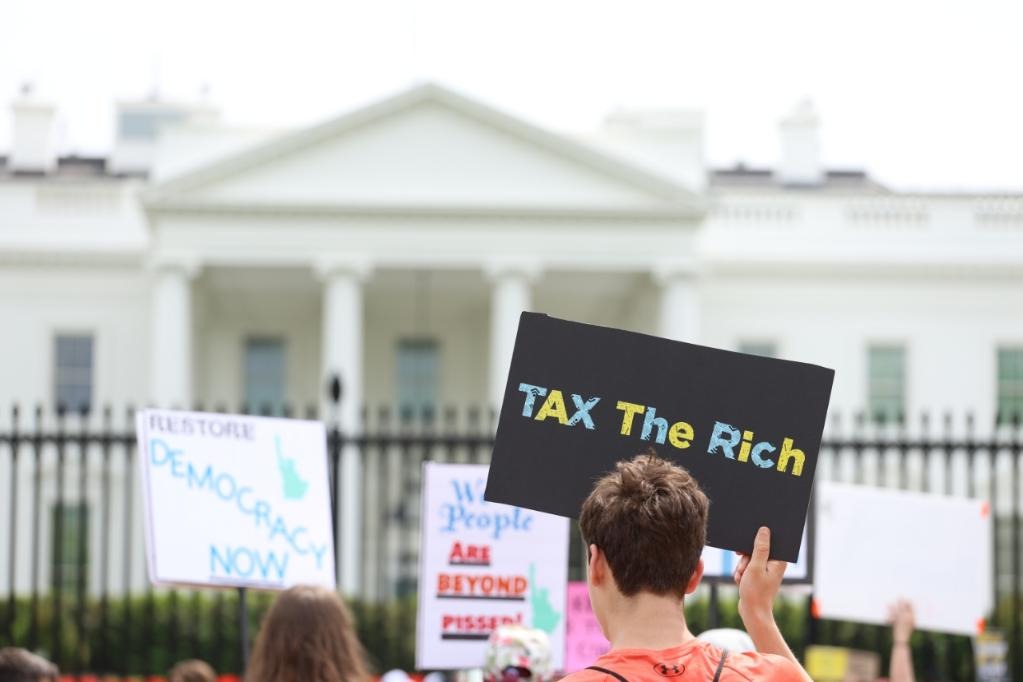Trump's tariffs ignore US services surplus, risk global disruption, says German economist


BERLIN -- US President Donald Trump's push for sweeping tariffs to shrink trade deficits is misguided and ignores America's substantial surplus in services, said Hermann Simon, a prominent German economist known as the father of the "hidden champions" theory.
US protectionist measures are politically motivated and risk inflicting long-term structural damage on global supply chains, Simon told Xinhua in a recent interview, warning that continued escalation could severely disrupt the global trading system.
"America often highlights its goods trade deficit while ignoring its significant surplus in services," he said, adding that such an imbalance in perception distorts the public debate.
Data showed that US exports of services were over $1 trillion in 2023, hitting a record high and accounting for 13 percent of the global total. In 2024, the US trade surplus in services rose to $293 billion, up 5 percent from 2023 and 25 percent from 2022, driven by high-value sectors including finance, legal services, technology and intellectual property.
Simon observed that while the United States runs deficits in goods, it consistently achieves significant surpluses in services, a structural advantage that is frequently left out of US trade rhetoric.
The economist said: "'Reciprocal tariffs' are largely designed to rally support from working-class voters who believe such measures will safeguard their jobs."
"But the truth is, tariffs raise prices and fuel inflation, ultimately hurting the very people they claim to protect," Simon said.
While Trump seeks to reshore manufacturing and encourage investment in his country, such measures are superficial and fail to address deeper structural issues, he added.
Simon also warned that the greater danger lies in the disruption of global supply chains.
"An iPhone may be assembled in China, but it contains components from around the world. Similarly, BMW cars manufactured in the United States rely heavily on German-made engines and parts. Tariffs threaten to unravel these intricate production networks," he explained.
Simon noted that the unpredictability of tariff policy poses an even greater risk than the tariffs themselves. "Companies don't fear clear rules, they fear constant policy reversals. One day there's a tariff, the next day there's an exemption. This uncertainty paralyzes long-term business planning," he said, adding that as a result, many firms delay or cancel investment decisions altogether.
"When the outlook is unclear, businesses hold back. They don't invest or expand, and that collective hesitation is a hidden but powerful drag on the global economy," Simon continued.
Simon pointed out that the cost of tariffs is not simply passed on to consumers but directly erodes company profits. "A 10-20 percent tariff forces companies to cut factory-gate prices to stay competitive. For price-sensitive goods, a 10 percent tariff could reduce profits by 27 percent. If tariffs rise to 20 percent, profit margins could be slashed by nearly half," he said.
Noting that American consumers are highly responsive to price changes, Simon said: "If prices go up 5 percent, most buyers will tolerate it. But if prices soar 20 percent, over 20 percent of consumers stop buying, and more than a third switch to cheaper alternatives. Once psychological price thresholds are crossed, demand collapses rapidly."
Recalling the disastrous outcome triggered by the Smoot-Hawley Tariff Act enacted in 1930, the economist cautioned against repeating past policy mistakes and said: "I hope we are not heading down that road again."
Despite current tensions, Simon emphasized the need for a fair, open and predictable multilateral system, arguing that it remains vital to advancing the shared interests of most countries.
































